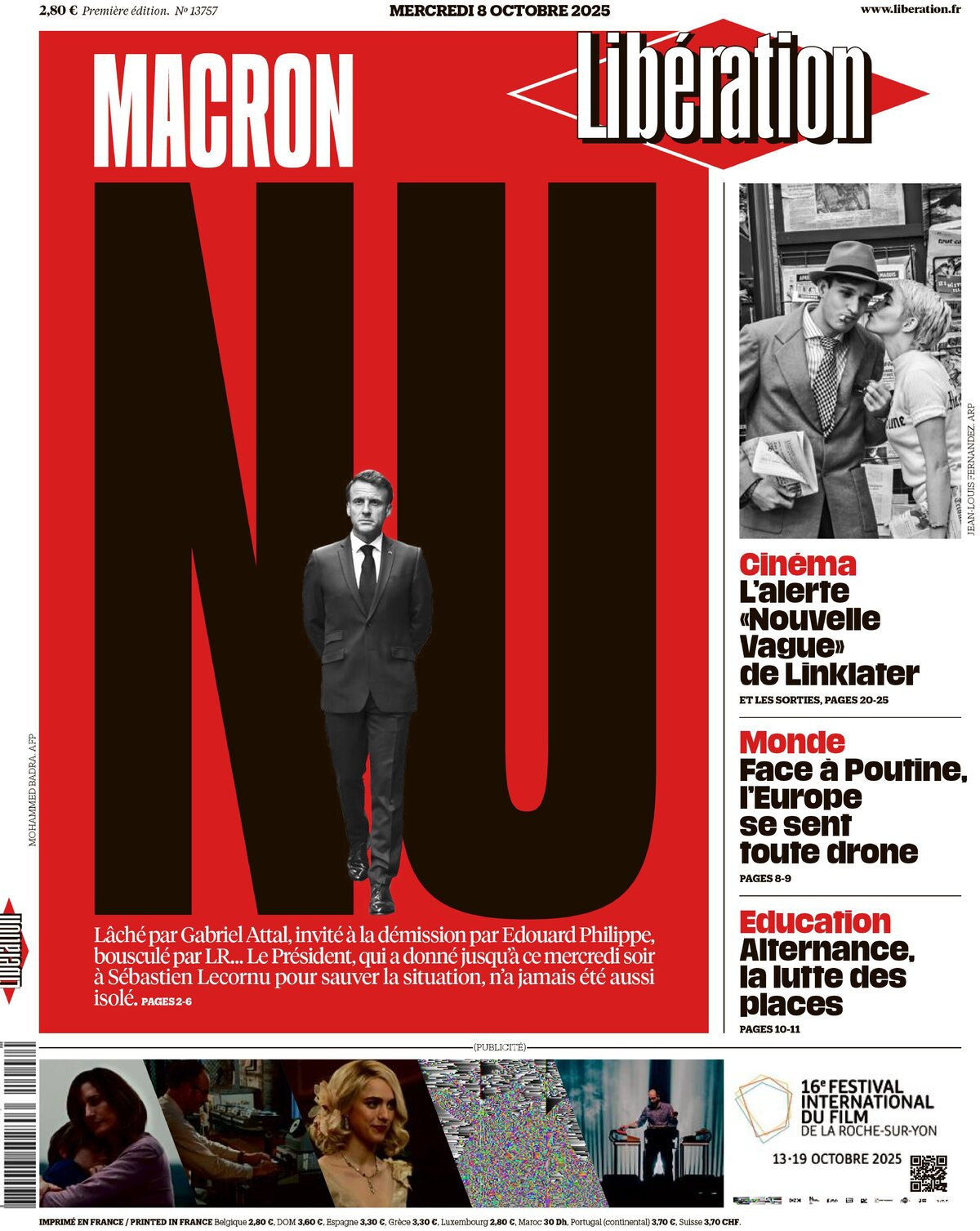Challenges to Trump’s “War on Narco-Terror” as Questions Mount Over Venezuela Strikes
Democrats move to curb US attacks, as evidence remains thin. As I told CBS News, the first strike may not have targeted a narco vessel — and U.S. forces aren’t configured for an assault on Venezuela

Pressure is increasing in response to a series of unprecedented U.S. military strikes on alleged drug traffickers at sea ordered by President Donald Trump. NPR reports that pair of Senate Democrats have launched a plan to force a Senate vote on a war powers resolution blocking the escalated action by the commander in chief. Sens. Adam Schiff, D-Calif., and Tim Kaine, D-Va., are pushing for the vote despite tough odds for passage as support among Republicans appears limited so far. They argue the White House has not provided evidence to justify the attacks, which they believe are illegal and unconstitutional. The two Democrats also say it’s clear Congress has not authorized the use of such force. “The resolution would stop this blowing up of ships,” Schiff told reporters in the Capitol ahead of the vote. “It would also address the administrations’ threat that they’re going to go potentially beyond blowing up ships at sea to attacking targets on land in Venezuela or elsewhere.” Last month, Trump ordered three U.S. military strikes on boats after administration officials suspected them as carrying members of the Tren de Aragua criminal gang smuggling drug shipments from Venezuela. So far 21 people have been killed, but their identities have yet to be shared. Secretary of Defense Pete Hegseth said last Friday that the United States had struck a small boat in international waters off the coast of Venezuela, killing four people. Hegseth alleged that the boat was operated by the drug cartel Tren de Aragua and was trafficking narcotics to the United States. The last strike was counted by one news outlet as the fourth (not third) confirmed time the Trump administration and the total number of strikes may even be as high as six. Furthermore, drugs have only been confirmed to be retrieved from the September 19 strike; the Dominican Republic announced it had recovered over 2,000 pounds of cocaine from the wreckage. Early in his presidency, Trump designated Latin American drug cartels as terrorist groups. The United States deployed several warships to the waters near Venezuela to counter maritime narcotics trafficking in August; simultaneously, the U.S. State Department increased its reward for information leading to the arrest of Venezuelan President Nicolás Maduro to $50 million, alleging that he led a drug-trafficking organization. Recent reporting suggests that the United States could be preparing to launch an attack within the South American nation’s borders.
In his fiery speech before the UN General Assembly recently, Colombian President Gustavo Petro alleged that Trump had personally authorized missile strikes against migrant boats in the Caribbean, killing vulnerable youths fleeing poverty. “Trump fires missiles at unarmed migrant boats and accuses them of being drug traffickers and terrorists, when they did not have a single weapon to defend themselves. The traffickers live in New York, just a few blocks away from here, and in Miami,” he told the assembly. He claimed that the true beneficiaries of the narcotics trade were not Latin American traffickers but elites in the United States. “When most of the drug traffickers are blond and blue-eyed, keeping their vast fortunes in the world’s largest banks, and do not live in Bogotá, Caracas, the Caribbean, or Gaza, but in Miami – they are the neighbors of the President of the United States,” he said. At that point, the U.S. delegation stood up and exited the chamber, leaving only a handful of allies to hear the remainder of Petro’s remarks - The City Paper (Bogota)
“They are narco terrorist organizations. These are not stockbrokers. These are not real estate agents who on the side deal a few drugs. These are organized, corporate-structured organizations who specialize in the trafficking of deadly drugs into the United States of America” - US Secretary of State Marco Rubio
Video
Watch my interview below with CBS News from last month, where I cast doubt on the boats carrying drugs and why I think the current deployment doesn’t match predictions for an invasion of Venezuela….
Russian President Vladimir Putin last week signed a decree that appears to target the assets of foreign companies that continue to operate in Russia and that have not yet been seized by the government. The decree calls for the accelerated privatization of state property to ensure defense capability, but it refers directly to “unfriendly actions” of the United States and other countries and organizations aligned with them that aim to impose “restrictive measures against citizens of the Russian Federation and Russian legal entities.” The decree outlines a special procedure for the registration, sale, and transfer of assets, including an accelerated time frame, and names PSB Bank (formerly Promsvyazbank) as the sole organizer of sales of property. Putin signed the decree in an apparent response to the EU’s consideration of a scheme to loan Ukraine billions of dollars based on frozen Russian assets held in the EU that have been immobilized since Moscow launched its full-scale invasion more than three years ago. European Commission President Ursula von der Leyen floated the idea of a “reparations loan” in her annual policy address to the European Parliament last month. The Kremlin has called the European initiative a confiscation and has threatened a “symmetrical response.” While the European measure does not involve the nationalization of any Russian federal asset, Putin’s decree appears to aim to nationalize the property of private companies. There are an estimated 800 Western European companies operating in Russia. A few are mentioned in the decree, including the Russian subsidiary of Austria’s Raiffeisen Bank International, Italy’s UniCredit, and the German chocolatier Ritter Sport. European regulators urged Raiffeisen to exit the Russian market starting in 2022, but the bank has been reluctant to give up the excess profits it enjoyed until recently as a near-monopoly financial institution capable of sending payments from Russia to Europe. It also balked at losing the ability to write off its Russian subsidiary as a loss. A sale initiated by the bank is out of the question because of the conditions under which foreigners can dispose of their Russian assets. A separate decree signed by Putin requires a 50 percent discount and a 10 percent compulsory contribution to the Russian budget - RFE/RL
Russia is sharing important battlefield lessons it has gleaned from its Ukraine invasion with China, Iran, and North Korea, a leading analyst argued in Foreign Affairs. The assessment contradicts Western conventional wisdom that Moscow has approached the conflict more as a meat grinder than with strategic nous. “Russia realizes that warfare is changing, so its military must change, as well,” the piece said. It comes amid mounting evidence of cooperation between what Washington hawks have dubbed the “Axis of Upheaval”: China is reportedly helping Iran evade US sanctions with a barter-like trading system, and is an increasingly critical investor in Russia, while Beijing’s premier is due in Pyongyang this week - Semafor
Russia is waging a “deliberate and targeted grey zone campaign” against Europe that requires a profound rethink of defence policy, Ursula von der Leyen has warned as she urged governments to leave their “comfort zone” and close ranks against Moscow. “Something new and dangerous is happening in our skies,” the European Commission president said on Wednesday morning, addressing lawmakers in Strasbourg. Von der Leyen cited the recent string of incursions into European airspace, including in Poland, Romania, Estonia, Denmark and, most recently, Belgium and Germany. Some of these incidents have been attributed to Russia, while others remain unexplained. But they have all triggered a sense of alarm and an uncomfortable reckoning about Europe’s lack of preparedness to intervene against drones - Euronews
US Secretary of State Marco Rubio is expected to attend a ministerial meeting to be held on Thursday in Paris with European, Arab and other states to discuss Gaza’s post-war transition, three diplomatic sources said on Wednesday. The meeting, to be held in parallel with indirect talks between Israel and Hamas in Egypt on US President Donald Trump’s plan for Gaza, is intended to discuss how the plan would be implemented and assess countries’ collective commitments to the process. According to a note sent to delegates, the meeting will follow up a conference on a “two-state solution” at the United Nations and is intended to agree on joint actions to make a contribution to the US plan for Gaza. The two-state solution would involve an independent Palestinian state alongside Israel. Countries attending on Thursday will include France, Britain, Germany, Italy, Spain, Canada, and other regional countries. The note had said Washington’s participation would depend on advances in the negotiations in Egypt. A European diplomatic source said it was vital to have the United States present. An Italian diplomatic source underlined the importance of supporting Trump’s plan, which was “the only one possible.” A French diplomatic source said the United States and Israel had been kept up to date with plans for the meeting and the agenda would include humanitarian aid for Gaza and the enclave’s reconstruction, disarmament of Hamas and support for the Palestinian Authority and Palestinian security forces - Arab News
UN official Jorge Moreira da Silva says that approximately $52bn will be needed to rebuild the Gaza Strip. He said 80 percent of the Gaza Strip’s infrastructure had been destroyed by the conflict and the process of removing the rubble was the immediate priority. Meanwhile, at least eight Palestinians have been killed and 61 others injured in new Israeli attacks across the Gaza Strip in the past 24 hours, according to the enclave’s Health Ministry - AJE
Outgoing French Prime Minister Sébastien Lecornu said on Wednesday that France could have a new prime minister within the next 48 hours, adding that the prospect of snap parliamentary elections was increasingly unlikely. “The prospect of a dissolution is becoming more remote,” Sébastien Lecornu announced during a TV address. “We could have a new prime minister within the next 48 hours,” he added. It is up to Macron’ to decide on whether to nominate a PM from the left, says Lecornu: “The decision of nominating a prime minister from the left is up to the head of state, it is up to him to conduct the final negotiations.” - France 24




